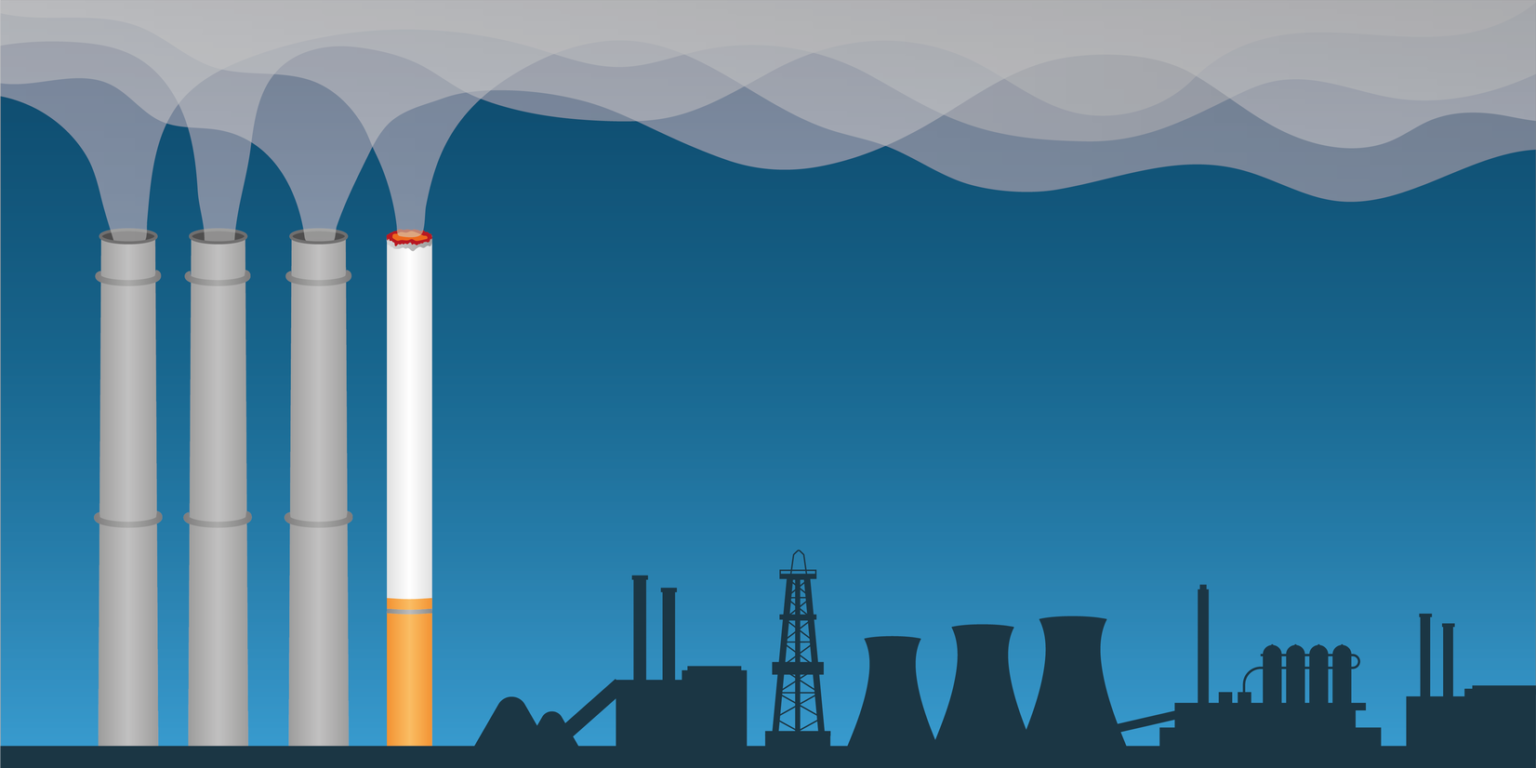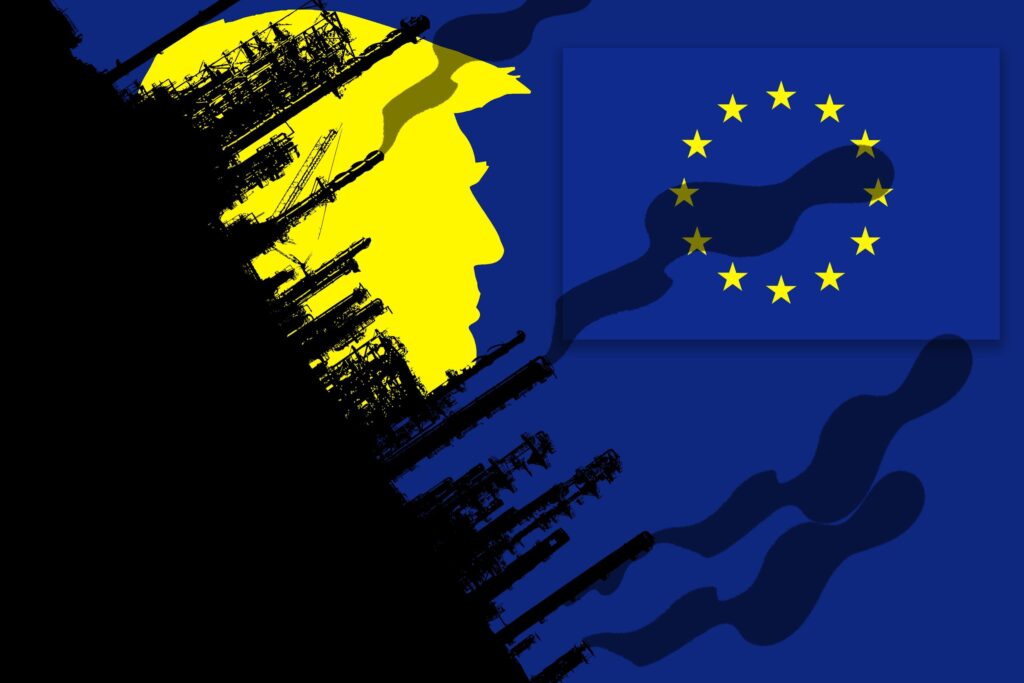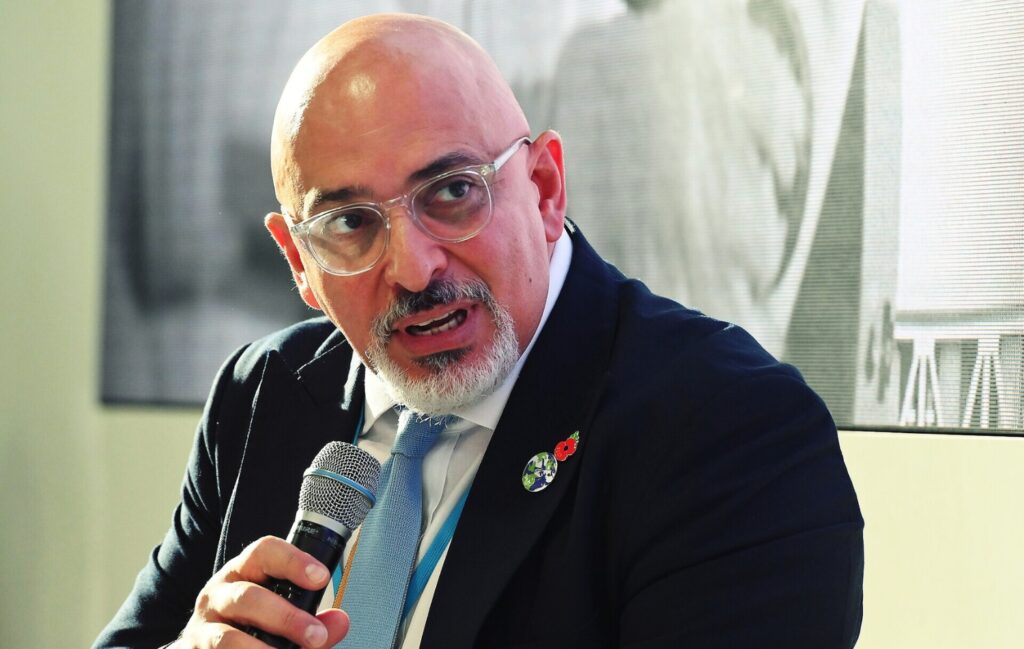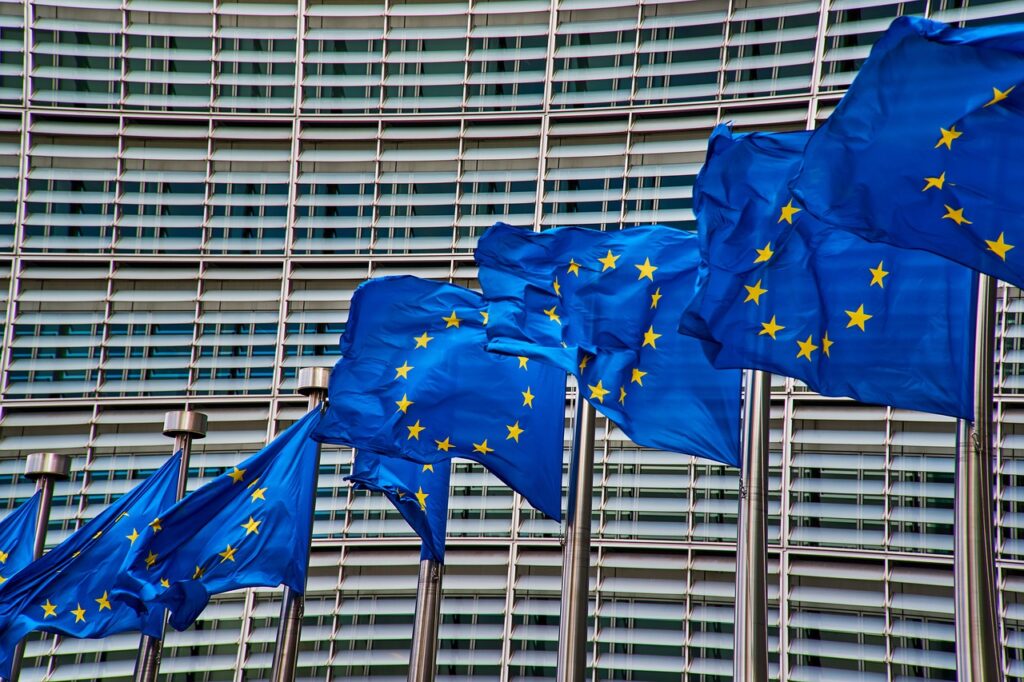Fossil fuel companies have a long history of adopting public relations strategies straight from the tobacco industry’s playbook. But a new analysis shows the two industries’ relationship goes much deeper — right down to funding the same organisations to do their dirty work.
MIT Associate Professor David Hsu analyzed organisations in DeSmog’s disinformation database and the Guardian’s tobacco database and found 35 thinktanks based in the US, UK, Australia, and New Zealand that promote both the tobacco and fossil fuel industries’ interests.
Of these organisations, DeSmog can reveal that 32 have taken direct donations from the tobacco industry, 29 have taken donations from the fossil fuel industry, and 28 have received money from both. Two key networks, based around the Koch brothers and Atlas Network, are involved in coordinating or funding many of the thinktanks.
While reviewing the Guardian’s database, Hsu recognized many of the names among those fighting tobacco regulations were the same as “those working to foment climate science denial”.
“This is a well-funded movement,” he says. “The strategies used in the tobacco debate are definitely strategies being used in the climate debate.”
Anti-Science Industrial Complex
There exists an ever-growing network of self-described ‘free market’ organisations that create reports, make media appearances, and disseminate information that the industry then uses to lobby policymakers. This analysis shows that many of these organisations also take donations from the industries they research and report on.
As a Guardian investigation by Jessica Glenza, with additional reporting by Sharon Kelly, recently revealed, these organisations provided “a powerful voice of support to cigarette manufacturers in battles against tougher regulations”. And as DeSmog has previously shown, the same organisations have a long history of promoting climate science denial to discourage policymakers from implementing carbon pollution regulations.
It matters where the money for the thinktanks’ activities comes from, Hsu says:
“There’s a lot of good research that shows that regardless of what people think of how money affects what they do, people that receive large donations are responsive to those donor interests.”
“The fossil fuel industry and the tobacco industry are funding disinformation campaigns so societies and countries can’t take action in ways that would generally benefit everyone except the fossil fuel and tobacco industries.”

Image: Buttons promoting a book by a Heartland Institute Advisory Board member. Credit: © Zach Roberts
“This is an interesting but not unexpected finding,” Robert Brulle, a sociology professor at Drexel University, tells DeSmog.
“Several conservative thinktanks were involved early on in the development and dissemination of misinformation regarding the tobacco and health linkage. The techniques of spreading doubt about scientific findings were developed in the tobacco campaign.”
“When the climate change issue emerged, the conservative thinktanks were well equipped and capable of applying their developed skills to bolster another anti-regulatory campaign.”
From Marginal and Isolated to Mainstream and Trans-Atlantic
The thinktanks responded to questions from the Guardian saying “they are fiercely independent, unswayed by any donations, and they argue pro-business, low regulation and taxation positions as part of a broader free market philosophy.”
But these organisations are having their voices and influence amplified due to political upheaval on both sides of the Atlantic, bringing what were once marginal ideas into the mainstream.
The election of Donald Trump in the US has seen the appointment of multiple officials with ties to these free market organisations. They have been placed in positions of power to shape federal energy and climate policy.
Among them are two previous employees of the American Legislative Exchange Council (ALEC), which has been described as a “corporate bill mill” by a former member.
One is Daniel Simmons, who now leads the US Department of Energy’s Office of Energy Efficiency and Renewable Energy, an office one of his previous employers lobbied to eliminate. Simmons also worked at the Mercatus Center, which has taken funding from both fossil fuel and tobacco companies.
The other is Todd Wynn, who got his start at the tobacco industry-funded Cascade Policy Institute and later led ALEC’s Energy, Environment, and Agriculture Taskforce. Today he directs the US Department of Interior’s Office of Intergovernmental and External Affairs. The Interior Department has authority for permitting fossil fuel industry extraction on the US’s vast federal lands.
Today, I had the privilege and honor of swearing in Daniel Simmons as the new Assistant Secretary of @ENERGY’s Office of Energy Efficiency & Renewable Energy. Looking forward to great things coming from EERE in 2019. pic.twitter.com/avBxG7axcn
— Rick Perry (@SecretaryPerry) January 17, 2019
And there are others. Trump’s first pick to lead the EPA, Scott Pruitt, chaired a ‘Civil Justice Taskforce’ for ALEC. And Myron Ebell, who headed Trump’s US Environmental Protection Agency (EPA) transition team, is an analyst at the Competitive Enterprise Institute (CEI) — a group which has received both fossil fuel and tobacco money.
The issue is not confined to the US. As politicians in the UK scramble for experts to provide them with information on Brexit, organisations such as the Institute of Economic Affairs (IEA), Adam Smith Institute (ASI), and Taxpayers’ Alliance have likewise seen their profiles (and funding) grow.
The organisations were recently accused by a whistleblower of coordinating messaging to push for a hard Brexit, as part of a wider UK network of organisations based in or around offices at 55 Tufton Street.
All three organisations have taken donations from tobacco companies while lobbying for favourable regulations for the industry, while the IEA and ASI have taken money from both the tobacco and fossil fuel industries.
Map by Richard Collett-White
Pay for Play?
There is evidence to suggest the research that comes from the tobacco and fossil fuel-funded network is not wholly impartial.
The IEA was last year caught in an undercover sting by Greenpeace’s investigative unit, Unearthed, suggesting the thinktank was willing to have some aspects of its research directed by funders and offering access to ministers in return for donations. The IEA denies the allegations.
The IEA was also recently censured by the UK’s Charity Commission for breaking its impartiality rules that are meant to prevent registered charities from conducting political lobbying.
Hans Gutbrod, Coordinator of Transparify, an NGO that rates thinktanks on their funding transparency, points out that this is “not a left-right issue”. However, he believes some pro-deregulation organisations have been captured by corporate interests. He told DeSmog:
“Original free market thinkers had repeatedly warned against the risks of narrow special interests trying to capture lawmakers and regulators. Yet such crony capitalism is exactly what is happening with a number of supposedly free-market thinktanks.”
“Rather than doing any policy research, they do thinly disguised lobbying work for a handful of corporations,” he said.
The IEA strongly denies that the source of its funding impacts its work. A spokesperson told DeSmog:
“The Institute’s editorial and policy output — in both our reports and our educational material — is decided by its research team and Academic Advisory Council only. Any funding we receive does not, under any circumstances, influence the focus or conclusions of our research.”
“As a free-market thinktank, it can hardly come as a surprise that we have published research that calls for deregulation. But the IEA does not take a corporate line on policy — we have published research in the past that calls for deregulation in a number of different sectors and markets; from financial services, to housing, to childcare.”
Calls for Deregulation Post-Brexit
Collectively, many of the organisations that receive donations from the tobacco and fossil fuel industries are involved in a trans-Atlantic push for greater deregulation post-Brexit.
For instance, Shanker Singham, once listed as an expert for the US’s Heartland Institute, is a key figure pushing for the UK to deregulate when it leaves the EU without a deal. The Heartland Institute has received donations from both tobacco and fossil fuel companies.
Singham had unprecedented access to the UK government during the early stages of the Brexit negotiations and was the lead author of the IEA‘s ‘Plan A+’ report, which outlined its vision for an alternative Brexit. The IEA was also one of the organisations named on a radical alternative plan for post-Brexit UK–US trade deal alongside the Cato Institute, another organisation to have taken both tobacco and fossil fuel donations.
That report slams the EU as saddling the UK with regulations that are “damaging to growth” and singles out environmental protection rules as one of the areas where EU regulation is “moving in an anti-competitive direction”.
Meanwhile, the DC-based Heritage Foundation has hosted a slew of UK politicians, including International Trade Secretary Liam Fox, former Environment Secretary Owen Paterson, and Brexit figurehead and former UK Independence Party leader Nigel Farage. The Heritage Foundation has taken money from both the tobacco and fossil fuel industries.
Ties to the Atlas Network
All of these organisations identify as ‘free-market’ thinktanks, and are coordinated — to an extent — through the Atlas Network.
Atlas is a Washington, D.C.-based outfit that works with more than 450 organisations across the world, connecting them “to the ideas and resources needed to advance the cause of liberty”, according to its website.
Atlas was founded by Antony Fisher in 1981 with the goal of bringing “innovative, market-based perspectives to issues of public policy.” Fisher also founded the IEA.
The Guardian revealed that more than a fifth of the organisations comprising the network “either argued against controls in some way, took industry donations, or both”. Of those organisations, DeSmog has identified 28 that also took donations from the fossil fuel industry.
Atlas itself has received substantial tobacco and fossil fuel industry backing.
The Guardian reports that Atlas received donations from British American Tobacco in 2015 and 2016, and Japan Tobacco International in 2016. According to PR Watch, tobacco giant Philip Morris contributed over $475,000 to Atlas in 1995 alone.
Among the fossil fuel industry donations Atlas has received, according to ExxonSecrets, ExxonMobil has given a total of $1,082,500 to the network since 1998.
When approached to comment for this story, a spokesperson for Atlas directed DeSmog to an FAQ for journalists. That document states that the network’s “views on donor transparency are informed by the U.S. Internal Revenue Service and the guidelines they provide, which we follow faithfully without exception.”
“Any reporting that claims or implies that Atlas Network is secretive or operates with anything short of complete fidelity to the legal requirements governing nonprofit organizations such as ours is patently false and indefensible,” the document says.
Atlas claims to operate in 90 countries. Wherever Atlas goes, there are organisations pushing back against established science, where such science undermines the case for industry deregulation.
In the UK, DeSmog has previously revealed how Atlas is at the heart of a network of organisations pushing for a hard Brexit. It increased its spending in Europe fivefold between 2015 and 2016, the year of the Brexit referendum — with spending increasing from $340,000 in 2015 to $1.7 million the following year.
The Ever-Looming Influence of the Kochs
In the background of all this are the Koch brothers.
Koch Industries is the largest privately owned energy company in the United States. Co-owners of a vast petrochemical and industrial empire, billionaire brothers Charles and David Koch are major funders of libertarian political organisations in the US and abroad.
Of the 28 organisations that accepted both tobacco and fossil fuel money, 23 also received donations from the Kochs.
Atlas took donations from the Kochs totalling $101,658 in 2016, up from $82,426 in 2015. According to data collected by Greenpeace USA, Atlas has received $348,560 in combined donations from Koch-related foundations between 1998 and 2015.
The Kochs are also major donors to the Cato Institute, Heritage Foundation, Heartland Institute, Competitive Enterprise Institute, and American Legislative Exchange Council (ALEC) — all organisations that have taken both tobacco and fossil fuel industry money.
UK organisations lobbying for a hard Brexit have also been indirect recipients of Koch money, often through Donors Trust — a foundation described by Mother Jones as the “dark money ATM of the conservative movement”, which has received sizable donations from the Kochs — or Epicenter, which acts as the Atlas Network’s European offshoot.
And DeSmog recently revealed that the Kochs were the source of the dark money behind a shadowy group of well-connected ‘free speech advocates’ pushing libertarian ideology and climate science denial in the UK.
The Kochs’ far-reaching funding can have major consequences, Hsu says.
“Organisations, a lot of them funded by the Koch network, have used the tax advantages of philanthropic organisations to first recoup tax advantages and second to use them as an influencing mechanism on the public debate.”
“A lot of these so-called thinktanks or philanthropic organisations are thought of as perhaps more neutral than they really are. They really do reflect the Koch brothers’ agenda.”
The British online magazine Spiked, which features climate denial, is funded by the Koch brothers through the Charles Koch Foundation.
Main image credit: DeSmog
Subscribe to our newsletter
Stay up to date with DeSmog news and alerts






